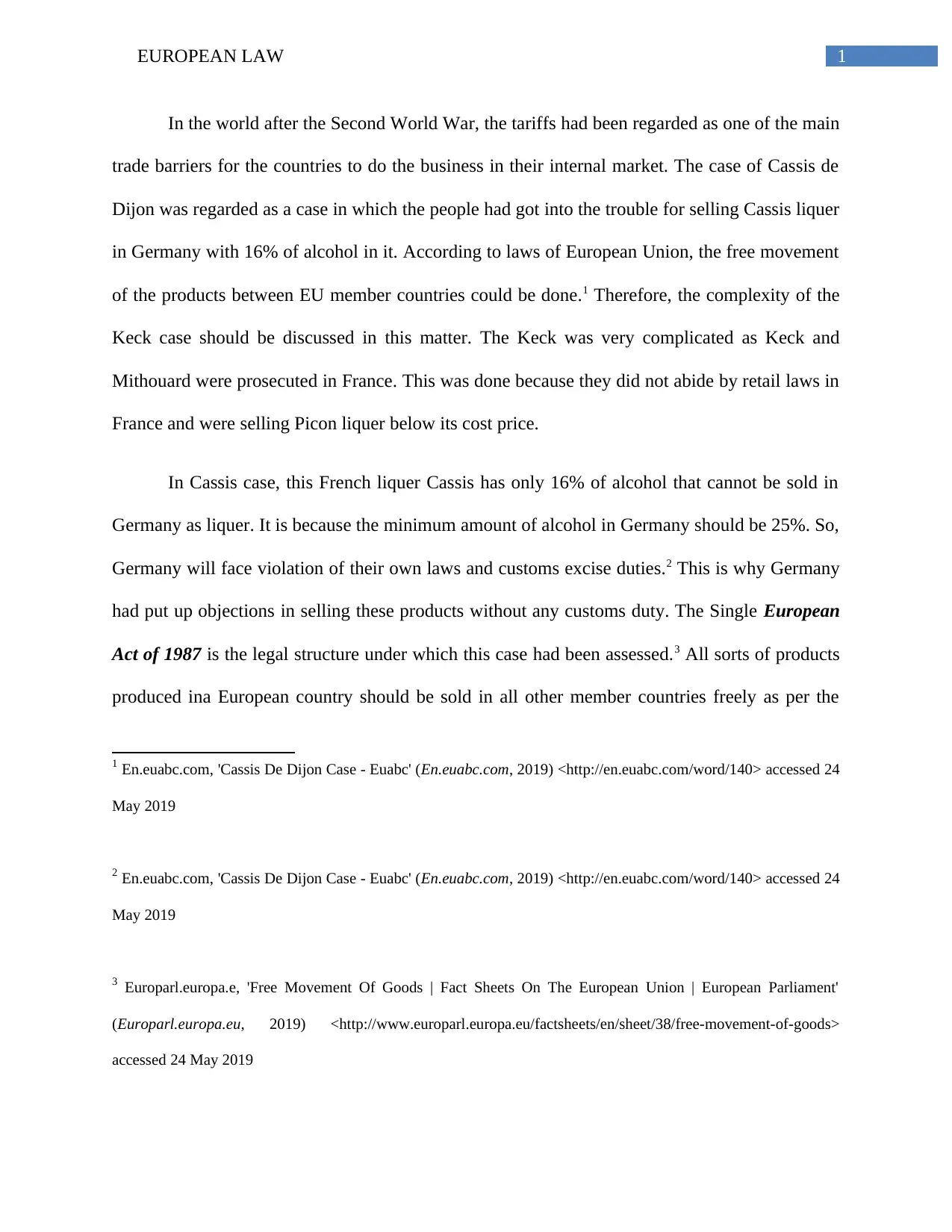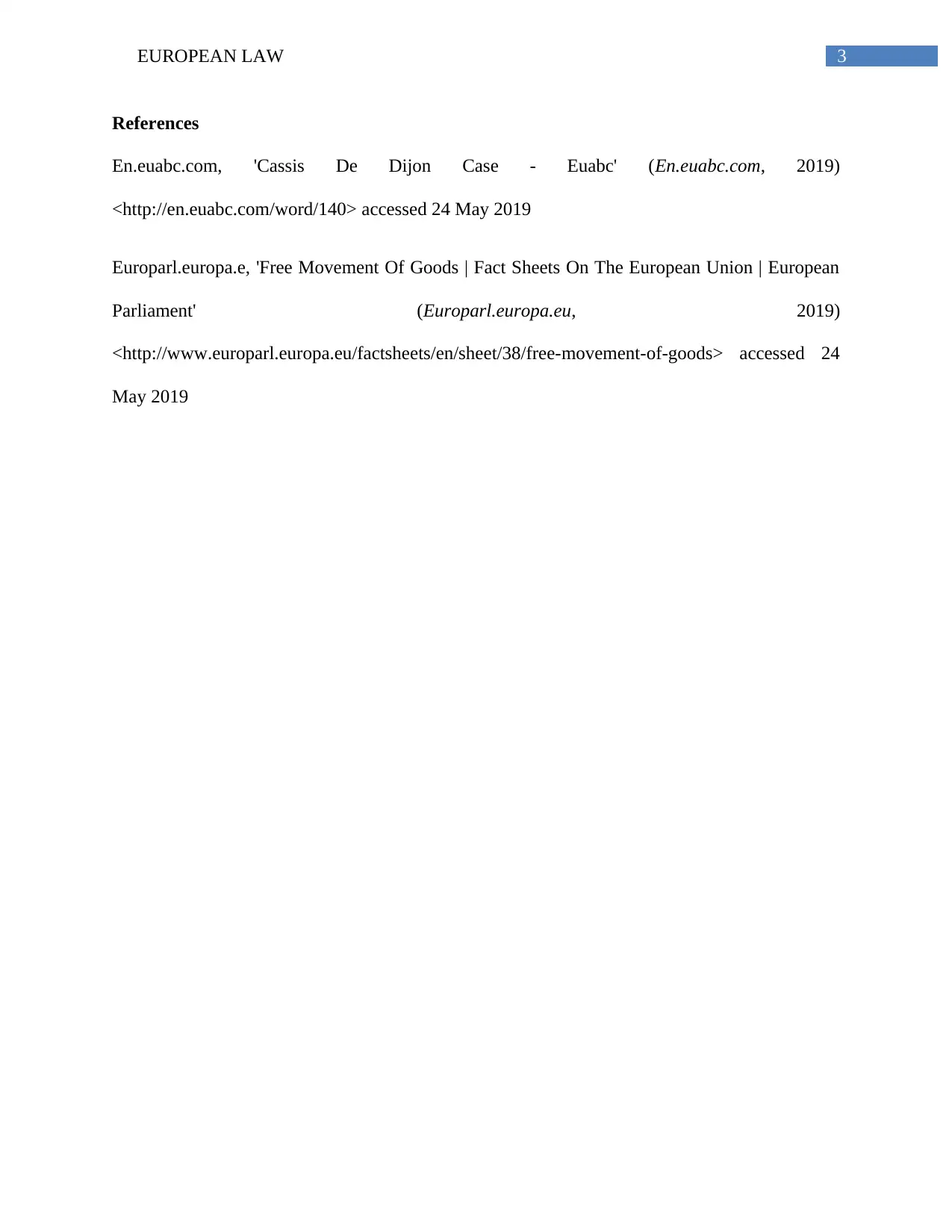A Comparative Analysis of European Law: Cassis de Dijon and Keck Cases
VerifiedAdded on 2023/04/04
|4
|364
|413
Report
AI Summary
This report analyzes key aspects of European Law, focusing on the Cassis de Dijon and Keck cases. The Cassis de Dijon case highlights the issue of trade barriers and the principle of free movement of goods within the European Union, particularly concerning differing national regulations. The report then discusses the Keck case, which further clarifies the application of EU law regarding retail regulations. The analysis includes the relevance of the Single European Act of 1987 and the impact of these cases on the overall legal framework governing trade within the EU. The report references the complexities of these legal precedents, emphasizing their significance in shaping European trade law.
1 out of 4










![[object Object]](/_next/static/media/star-bottom.7253800d.svg)